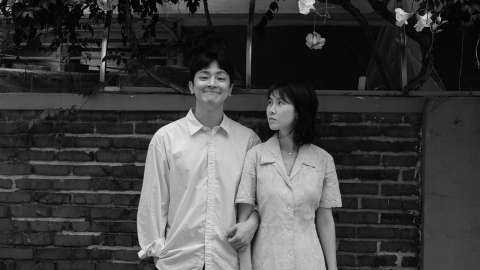Jeju Air has 73 fewer mechanics in 4 years…The most 'departure delay' due to maintenance.
2024.12.31 AM 09:47
이미지 확대 보기

ⓒYonhap News Agency
While various causes have been raised for the Jeju Air passenger plane accident, the problem of neglect of the maintenance system due to excessive operation has been put on the cutting board.
In fact, the number of aviation mechanics belonging to Jeju Air has decreased by 73 in four years.
According to the Ministry of Land, Infrastructure and Transport's aviation information portal system status on the 30th, the number of aviation mechanics in Jeju Air decreased by 13.5% from 542 in 2019 to 469 last year.
The number of Jeju Air mechanics fell annually during the COVID-19 pandemic to 542 in 2019, 501 in 2020, 465 in 2021, and 431 in 2022, before rebounding for the first time last year, but failed to recover to levels five years ago.
It is believed that the number of aviation mechanics who retired or moved to other industries is increasing as airlines are trying to significantly reduce their manpower during the COVID-19 period.
According to data submitted by the Ministry of Land, Infrastructure and Transport to the office of Park Sang-hyuk of the Democratic Party of Korea, Jeju Air had 0.77% of the total flights delayed due to aircraft maintenance as of July last year, the highest among 11 domestic airlines.
In fact, on this year's anonymous community blind of office workers, a netizen who said he was a Jeju Air mechanic posted a message complaining that "technology workers work 13 to 14 hours at night and have no break except for about 20 minutes of eating."
Jeju Air was suspended for 11 days last year for violating flight and maintenance regulations, and in 2022, 7 days and 20 days were suspended for violating flight regulations and transporting dangerous goods, respectively.
Jeju Air claimed that "the safety inspection of the aircraft was thoroughly carried out," as it pointed out whether the accident was negligent in maintenance due to unreasonable flight plans.
Reporter Park Sun-young of Digital News Team
In fact, the number of aviation mechanics belonging to Jeju Air has decreased by 73 in four years.
According to the Ministry of Land, Infrastructure and Transport's aviation information portal system status on the 30th, the number of aviation mechanics in Jeju Air decreased by 13.5% from 542 in 2019 to 469 last year.
The number of Jeju Air mechanics fell annually during the COVID-19 pandemic to 542 in 2019, 501 in 2020, 465 in 2021, and 431 in 2022, before rebounding for the first time last year, but failed to recover to levels five years ago.
It is believed that the number of aviation mechanics who retired or moved to other industries is increasing as airlines are trying to significantly reduce their manpower during the COVID-19 period.
According to data submitted by the Ministry of Land, Infrastructure and Transport to the office of Park Sang-hyuk of the Democratic Party of Korea, Jeju Air had 0.77% of the total flights delayed due to aircraft maintenance as of July last year, the highest among 11 domestic airlines.
In fact, on this year's anonymous community blind of office workers, a netizen who said he was a Jeju Air mechanic posted a message complaining that "technology workers work 13 to 14 hours at night and have no break except for about 20 minutes of eating."
Jeju Air was suspended for 11 days last year for violating flight and maintenance regulations, and in 2022, 7 days and 20 days were suspended for violating flight regulations and transporting dangerous goods, respectively.
Jeju Air claimed that "the safety inspection of the aircraft was thoroughly carried out," as it pointed out whether the accident was negligent in maintenance due to unreasonable flight plans.
Reporter Park Sun-young of Digital News Team
[Copyright holder (c) YTN Unauthorized reproduction, redistribution and use of AI data prohibited]
Editor's Recomended News
The Lastest News
-
UK massive flooding damage... "Over 200 flood warnings"
-
Jean-Marie Le Pen, France's far-right, dies...He was 96 years old.
-
재생
![[Taking care of the situation] The Senior Civil Servant Corruption Investigations Unit, again, "Empty-handed"...Would it be different for the second arrest warrant?](https://image.ytn.co.kr/general/jpg/2025/0107/202501072229206133_h.jpg) [Taking care of the situation] The Senior Civil Servant Corruption Investigations Unit, again, "Empty-handed"...Would it be different for the second arrest warrant?
[Taking care of the situation] The Senior Civil Servant Corruption Investigations Unit, again, "Empty-handed"...Would it be different for the second arrest warrant? -
France's 10th anniversary of "Charlie Hebdo Terror"...A memorial service will be held at the scene of the disaster.






![[Exclusive] Song Hye-kyo, Jeon Yeo-bin, Lee Jin-wook meet Big Bang Daesung...The](https://image.ytn.co.kr/general/jpg/2025/0107/202501071630024989_h.jpg)


